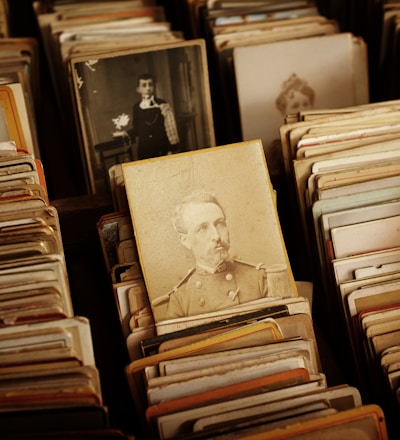Welcome to HistoryCenter.net
1. Introduction
Studying history is of utmost importance as it provides us with a window into the past, enabling us to understand the foundation on which our present stands. By exploring historical events, we are able to grasp the evolution of societies, cultures, and ideas throughout time. It allows us to learn from the achievements and mistakes of our predecessors, shaping our decisions in the present and influencing our future trajectory. By delving into the past, we can gain valuable insights that guide us towards a more informed and enlightened world.
1.1. Definition of history
History refers to the systematic investigation and study of past events, particularly in relation to human societies and civilizations. It encompasses the collection, analysis, interpretation, and presentation of data and evidence from various sources such as written records, artifacts, and oral traditions. By examining these sources, historians strive to construct an accurate and comprehensive understanding of the past. History acts as a bridge between generations, allowing us to connect with our roots and comprehend the complexities of the world we currently inhabit.
1.2. Significance of studying history
The significance of studying history lies in its ability to provide invaluable lessons and perspectives that shape our present and future. By studying history, we gain a comprehensive understanding of the human experience, learning from past mistakes and avoiding their repetition. It allows us to discern patterns and trends, enabling us to anticipate potential outcomes and make informed decisions. Moreover, studying history influences social and cultural development, inspiring innovation and progress. It serves as a constant reminder of the achievements, struggles, and triumphs of our ancestors, fostering a sense of identity and purpose.
2. Understanding the past
Understanding the past is crucial as it allows us to comprehend the factors and events that have shaped our present reality. By examining historical events, we gain valuable knowledge of how societies, cultures, and civilizations have evolved over time. This understanding enables us to appreciate the significance of past decisions and actions, providing a foundation for informed decision-making in the present and future.
2.1. Learning from past mistakes
Learning from past mistakes is a fundamental aspect of studying history. Through an examination of historical events, we can identify the errors and missteps made by individuals, societies, and even entire civilizations. By understanding the consequences of these mistakes, we are better equipped to avoid repeating them in the future. The study of history allows us to learn valuable lessons, analyze the root causes of failures, and develop strategies to ensure a more prosperous and harmonious future.
2.2. Gaining insights into human behavior
Studying history provides us with profound insights into human behavior. By examining the actions, motivations, and decisions of people from different time periods, we can develop a deeper understanding of what drives individuals and societies. This knowledge helps us comprehend the complexities of human nature, identify common patterns of behavior, and ultimately enhances our ability to predict and navigate human actions in the present and future.
2.3. Recognizing patterns and trends
Recognizing patterns and trends is an essential skill that studying history cultivates. By examining historical events and processes, we can identify recurring patterns and trends that have shaped societies and cultures throughout time. This recognition enables us to make more accurate predictions and informed decisions in contemporary contexts. Whether it be political, economic, or social patterns, understanding historical trends empowers us to navigate the complexities of the present and shape a better future based on past experiences.
3. Shaping the present and future
Studying history is crucial for shaping the present and future of our society. By looking back at past events and understanding the factors that led to certain outcomes, we can make informed decisions that positively impact our lives. Learning from the mistakes of the past allows us to avoid repeating them and steer our future towards success. History provides us with valuable lessons and insights that can guide our decision-making processes, making them more rational and strategic. By analyzing the consequences of past actions, we can anticipate potential outcomes and make choices that will lead to a better future for ourselves and future generations.
3.1. Informing decision-making processes
The study of history plays a crucial role in informing decision-making processes. By examining past events, we can gain a deeper understanding of the various factors that contributed to their outcomes. This knowledge allows us to make more informed and rational decisions based on historical evidence and patterns. By analyzing the successes and failures of past decisions, we can evaluate their consequences and determine the best course of action. History provides us with valuable insights into the complexities of decision-making, helping us navigate through challenges and make choices that align with our goals and values.
3.2. Influencing social and cultural development
The study of history has a profound influence on social and cultural development. By examining the past, we can understand the roots of our society and how it has evolved over time. History provides us with a sense of identity and belonging, fostering a shared cultural heritage that strengthens social cohesion. By studying the struggles and achievements of our ancestors, we gain a deeper appreciation for diversity and a greater understanding of cultural evolution. History helps us recognize the values and traditions that have shaped our society, empowering us to uphold and celebrate them in a rapidly changing world. Through the knowledge of history, we can actively contribute to the positive development of our social and cultural fabric.
3.3. Inspiring innovation and progress
The study of history serves as a catalyst for innovation and progress. By examining past inventions, discoveries, and human achievements, we can find inspiration for new ideas and advancements. History showcases the remarkable ingenuity and creativity of individuals throughout time, encouraging us to explore new possibilities and push the boundaries of knowledge and technology. Studying the past enables us to build upon the past successes and failures, promoting innovation by learning from what came before. By understanding the historical context of innovation, we can identify gaps and opportunities in our current society, leading us to find new solutions to challenges and driving progress in various fields.
4. Preserving cultural heritage
The preservation of cultural heritage is of utmost importance as it allows us to connect with our roots and understand our collective identity. By safeguarding artifacts and traditions, we ensure that future generations can appreciate and learn from our rich history. These cultural treasures serve as tangible links to the past, offering valuable insights into the customs, beliefs, and achievements of our ancestors. Through preservation efforts, we ensure that our cultural heritage continues to thrive and inspire, fostering a sense of pride and appreciation for our roots.
4.1. Documenting and conserving artifacts and traditions
Documenting and conserving artifacts and traditions is essential in order to preserve our cultural heritage. By carefully cataloging and maintaining physical artifacts and intangible practices, we ensure that they are protected from deterioration or loss. Documenting these artifacts and traditions not only allows us to study and understand their significance but also provides future generations with a tangible connection to their history. Through conservation efforts, we can safeguard these valuable pieces of our past, ensuring that they remain accessible for education, inspiration, and the enrichment of our collective cultural identity.
4.2. Maintaining cultural identity and diversity
Maintaining cultural identity and diversity is crucial as it encourages a thriving and inclusive society. By studying history, we gain insight into the rich tapestry of cultures that have shaped our world. It enables us to appreciate and celebrate the unique traditions, languages, and customs that make each community distinct. By recognizing and valuing cultural diversity, we promote social harmony and mutual respect. Preserving our cultural identity allows us to pass down our traditions from one generation to the next, ensuring that the legacy of our ancestors remains alive and cherished.
4.3. Honoring and remembering past achievements
Honoring and remembering past achievements is vital as it instills a sense of pride, motivation, and inspiration. By paying tribute to the great accomplishments of our predecessors, we acknowledge their contributions and the progress they made. Their achievements serve as a reminder of the immense potential within each of us to effect positive change. Studying history allows us to learn from the successes and failures of those who came before us, providing valuable lessons that we can apply to our own lives and endeavors. Remembering past achievements fuels our aspirations and drives us to strive for greatness.
5. Fostering critical thinking skills
Studying history plays a crucial role in fostering critical thinking skills. It requires analyzing and interpreting historical sources, evaluating different perspectives and biases, and developing logical reasoning and argumentation. By examining primary and secondary sources, such as letters, diaries, and official documents, historians learn to critically analyze and interpret the information presented. This process helps individuals develop a keen eye for detail, question assumptions, and draw evidence-based conclusions. Moreover, studying history cultivates the ability to evaluate different perspectives and biases, enabling individuals to better understand the complexity of historical events. It also develops logical reasoning and argumentation skills, as students learn to construct coherent and evidence-based arguments to support their interpretations of history. Ultimately, history education encourages individuals to think critically, question existing narratives, and develop informed perspectives.
5.1. Analyzing and interpreting historical sources
Analyzing and interpreting historical sources is a fundamental aspect of studying history. By examining firsthand accounts, letters, official documents, photographs, and other artifacts, historians gain valuable insights into past events. They learn to critically analyze the reliability, biases, and limitations of these sources, ensuring a more accurate understanding of history. Moreover, this process enhances critical thinking skills by encouraging individuals to question the motives and perspectives of those who created the sources. Understanding historical sources also involves deciphering the context in which they were produced, considering the historical, social, cultural, and political factors that shaped them. Through this analytical approach, students not only learn about the past but also develop valuable skills in evaluating and interpreting information in various contexts, which are crucial for navigating an increasingly complex world.
5.2. Evaluating different perspectives and biases
Studying history involves evaluating different perspectives and biases, leading to a deeper understanding of past events. Historical accounts are often influenced by various biases, such as political, social, or cultural, and historians critically analyze these biases to uncover a more comprehensive narrative. By examining multiple perspectives, individuals learn to think objectively and consider alternative viewpoints. Understanding the biases present in historical sources allows students to approach history with a critical and discerning mindset, enabling them to distinguish between objective facts and subjective interpretations. This skill is invaluable in all aspects of life, as it helps individuals navigate information, evaluate arguments, and form well-rounded opinions based on a thorough analysis of diverse viewpoints.
5.3. Developing logical reasoning and argumentation
Studying history enables individuals to develop and strengthen their logical reasoning and argumentation skills. Historical research involves analyzing evidence, making connections, and constructing coherent arguments based on facts and logical deductions. By studying history, students learn to examine relationships between various events and developments, identify patterns, and draw insightful conclusions. They develop the ability to construct compelling arguments supported by evidence, while critically recognizing and addressing counterarguments. History encourages individuals to think logically, evaluate evidence, and communicate their ideas effectively, skills that are valuable in academic, professional, and personal contexts. The study of history not only enhances logical reasoning and argumentation skills but also cultivates a capacity for intellectual rigor, enabling individuals to approach problems and challenges with a well-informed and systematic mindset.
6. Promoting empathy and understanding
Studying history plays a crucial role in promoting empathy and understanding among individuals. By delving into the past, we gain valuable insights into the experiences of diverse individuals and groups. We can examine the triumphs and struggles of different cultures, races, and societies, enabling us to better understand their perspectives and challenges. This understanding fosters empathy, allowing us to connect on a deeper level with people from all walks of life. By putting ourselves in the shoes of those who came before us, we develop a greater sense of compassion and recognize the common humanity that binds us all together.
6.1. Examining the experiences of diverse individuals and groups
By studying history, we have the opportunity to examine the experiences of diverse individuals and groups throughout time. We can explore the hardships faced by marginalized communities, the triumphs of underrepresented voices, and the contributions made by individuals from various backgrounds. Through this examination, we gain a comprehensive understanding of the challenges these groups have faced, and their impact on shaping the world we live in today. By learning about their experiences, we can develop a profound appreciation for diversity and work towards creating a more inclusive and equitable society.
6.2. Encouraging tolerance and respect for others
One of the essential benefits of studying history is its ability to encourage tolerance and respect for others. By exploring the past, we encounter a wide range of beliefs, values, and cultural practices. Through this exploration, we develop an understanding that there is no single "right" way of living or perceiving the world. History teaches us to respect and value different perspectives, fostering a sense of empathy and appreciation for the diversity of human experiences. This promotes tolerance, acceptance, and a willingness to engage in peaceful dialogue with those whose beliefs may differ from our own.
6.3. Building bridges across cultures and generations
Studying history serves as a bridge that connects cultures and generations. Through the examination of historical events, traditions, and societal norms, we create opportunities for dialogue and understanding between different cultures. By appreciating the achievements, struggles, and values of past civilizations, we build a foundation of respect and appreciation for the richness and diversity of human culture. History provides a shared language through which we can communicate and relate to others, fostering connections that transcend time and boundaries. This bridge-building fosters a sense of unity and cooperation, promoting a more inclusive and harmonious global society.
7. Inspiring personal and societal growth
Studying history is not only about learning facts and dates, but it also plays a crucial role in inspiring personal and societal growth. By understanding the struggles, triumphs, and accomplishments of our ancestors, we can draw inspiration and motivation to overcome our own challenges. History provides us with role models who have pursued great achievements, setting a precedent for what is possible. Additionally, studying history allows us to reflect on the mistakes and successes of the past, enabling us to make better choices and decisions in our own lives and contribute positively to society.
7.1. Drawing inspiration from past accomplishments
The study of history offers a treasure trove of past accomplishments that can inspire and motivate individuals and societies. Whether it is the achievements of ancient civilizations, groundbreaking scientific discoveries, or revolutions that shaped the course of nations, history provides a vast pool of inspiration. By learning about the accomplishments of the past, we can envision a brighter future and strive for greatness. These historical accomplishments serve as reminders that ordinary individuals can make extraordinary contributions, fueling the belief that we too can leave a lasting legacy.
7.2. Encouraging civic engagement and social responsibility
The study of history not only informs us about past events but also encourages civic engagement and social responsibility. By examining historical struggles for equality, justice, and human rights, we are motivated to take an active role in addressing societal issues and working towards a fairer society. Understanding the past empowers individuals to actively participate in democratic processes, advocate for positive change, and fulfill their responsibilities as citizens. Through historical knowledge, we are reminded of the importance of collective action and the role we play in shaping the future of our communities.
7.3. Nurturing a sense of collective identity and purpose
Studying history nurtures a sense of collective identity and purpose by connecting individuals to their shared heritage and experiences. It allows us to understand where we come from, the struggles our ancestors faced, and the values they held dear. This shared connection to the past fosters a sense of belonging and unity within communities and societies. It provides a foundation for building a collective identity rooted in a common history and shared values. By recognizing our collective heritage, we can work together towards a common purpose, shaping a brighter future based on the lessons and wisdom of the past.






